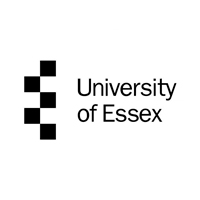fees waived
Economics with Mathematics, BSc (Hons), with industry placement
University of Essex, United Kingdom
Subject ranking
UK / QS 18th
UK / Guardian 18th
UK / Times 26th
Costs
food & rentS$16.8K / year
Entry requirements
Scholarships
Unlimited quantity
Limited quantity
Limited quantity
Information
Code
Intakes
Website (External)
Programmes
Information
Duration
2028
How do individuals and organisations produce, consume and sell goods and services? How can a country or individual make better use of the resources it has? Economics is not only about stocks, shares, and financial markets; it relates to every aspect of our lives where there is a demand to produce and supply goods and services.Economics at Essex is a home for the tenacious and bold: we encourage you to ask difficult questions so you can work with us to break intellectual boundaries and pioneer new solutions to issues of global concern. Mathematics develops strong problem-solving skills that will complement the economics side of your course and allow you to understand the more complex elements of the subject.Our course gives you a thorough introduction to all aspects of economics and mathematics. You explore topics including:
- Micro and macroeconomics
- Qualitative and mathematical research methods
- Statistics
- Linear algebra
- Calculus
- Our data scientists carefully consider how not to lie, and how not to get lied to with data. Interpreting data correctly is especially important because much of our data science research is applied directly or indirectly to social policies, including health, care and education.
- We do practical research with financial data (for example, assessing the risk of collapse of the UK’s banking system) as well as theoretical research in financial instruments such as insurance policies or asset portfolios.
- We also research how physical processes develop in time and space. Applications of this range from modelling epilepsy to modelling electronic cables.
- Our optimisation experts work out how to do the same job with less resource, or how to do more with the same resource.
- Our pure maths group are currently working on two new funded projects entitled ‘Machine learning for recognising tangled 3D objects’ and ‘Searching for gems in the landscape of cyclically presented groups’.
- We also do research into mathematical education and use exciting technologies such as electroencephalography or eye tracking to measure exactly what a learner is feeling. Our research aims to encourage the implementation of ‘the four Cs’ of modern education, which are critical thinking, communication, collaboration, and creativity.
A local representative of University of Essex in Singapore is available online to assist you with enquiries about this course.

